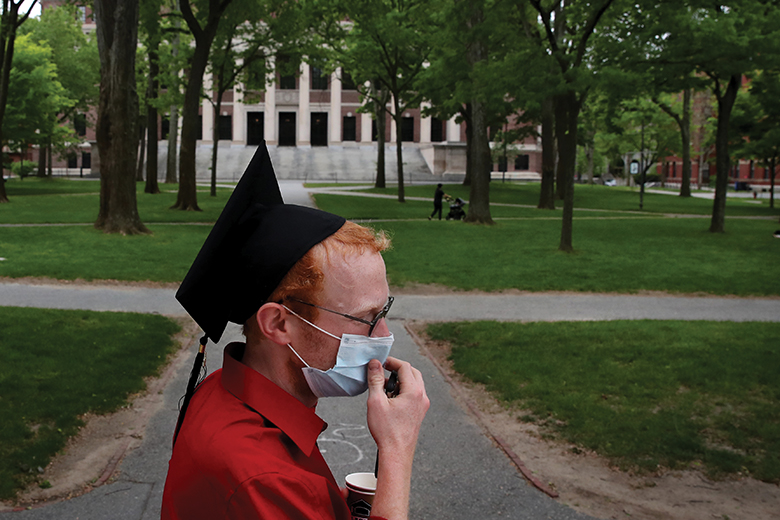
Finances complicate resumption of US Covid curbs
US colleges and universities encounter tricky Covid selections at the start out of the spring semester, with economical pressures seeking most likely to complicate responses to the fast-spreading Omicron variant, a chief wellbeing advisory group is warning.
Just a couple of weeks because its discovery, Omicron already is driving a broad break up, with some major universities declaring plans to resume lessons future month in on the internet formats, although other institutions cope with state governing administration pressure to maintain operating in-individual classes with neither mask nor vaccination demands.
Together with people overtly political constraints, a significantly less visible truth confronts US better schooling: quite a few campuses, with minimal public consciousness, are understood to have slice back the consideration and funding they promised their wellbeing teams for these kinds of initiatives as tests and tracing.
Surveys this autumn semester of countless numbers of health and fitness professionals at hundreds of US campuses, by the 900-establishment American Faculty Health and fitness Association, have shown that medical authorities see a dangerous “business as normal attitude” among the campus leaders who experienced been hoping that the pandemic menace was in retreat and started sensation that incredible steps could be established aside.
While the responses ended up compiled ahead of the Omicron breakout, campus health and fitness gurus explain that fundamental leadership technique as persisting, reported Anita Barkin, co-chair of the Covid-19 Activity Drive at the American Faculty Overall health Association.
“Certainly we’re not listening to studies of universities saying: ‘We just cannot do any of this for the wellness and perfectly-getting of our campus mainly because of the bottom line,’” Dr Barkin explained. “But we know that this has experienced an remarkable monetary effects on establishments, there’s no issue about that,” she explained of numerous mitigation strategies – testing, mask prerequisites, boundaries on the dimensions of social activities and academic things to do – that have been steadily eased, in some scenarios to help save dollars.
“And to those in school wellbeing who are working with the onslaught of health issues, a small business as standard mind-set is pretty troubling,” Dr Barkin claimed.
The rapid exceptions contain some of the nation’s most effective-resourced establishments. Harvard and Stanford universities are among those people currently telling their students they will commence January in on line formats. They, alongside with many other elite establishments – which includes Yale, Brown, Princeton, Columbia, Cornell and Duke universities – are imposing Covid booster shot requirements as a ailment for returning to campus.
The predicament is fewer very clear in other places. The College of Ga has led a lawful challenge to vaccine mandates in academia – reflecting the opposition to health-oriented prerequisites in several conservative state governments. These institutions have been pleading with their pupils to get their immunisations regardless of any necessity, but the lack of mandates is understood to be leaving considerable coverage gaps, and some states will not even permit their institutions to inquire their communities about vaccination standing, Dr Barkin explained.
Between people relative extremes, she reported, the extensive greater part of US institutions are closely looking at the quickly spread of the Omicron variant and striving to choose what reaction helps make most sense.
For that, the American College or university Wellness Affiliation has been a top supply of health-related steerage. But it recognises that campus-certain situations are so exclusive – in locations that consist of institution dimension, employees and housing resources and neighborhood spread – that it are unable to present any over-all advice on irrespective of whether US greater education and learning should resume the on the web formats that ended up viewed practically universally in early 2020.
Other autumn semester study knowledge from the American Council on Schooling, the key US larger training association, affirms that many campus presidents are anxious about their finances but overwhelmingly rate political factors as the chief complication in their pandemic responses.
The study of 113 campus presidents found 63 per cent agreed that politics hindered their use of Covid protections these types of as vaccine mandates. An additional 63 per cent cited maintaining enrolment for the coming tutorial expression as a foremost worry. Only student psychological well being topped enrolment as the best total issue for the campus presidents. Those two challenges were being adopted by their problem for personnel mental health and fitness, and then by their concern about their institution’s long-expression financial viability.
